'Inhumane:' How ‘Bernie’ and his legal team are crusading against sweltering Texas prisons
- Oops!Something went wrong.Please try again later.
Bernhardt "Bernie" Tiede II, the Texas funeral director who shot dead a wealthy widow and jammed her body into a meat freezer, has a new cause from his prison cell: There is no air conditioning in Texas prisons, so he is suing the state.
"Inhumane," Tiede calls his treatment.
A judge has sided with Tiede and ordered him, for now, moved to air-conditioned housing. That ruling could end up benefiting more than 120,00 inmates incarcerated in Texas prisons.
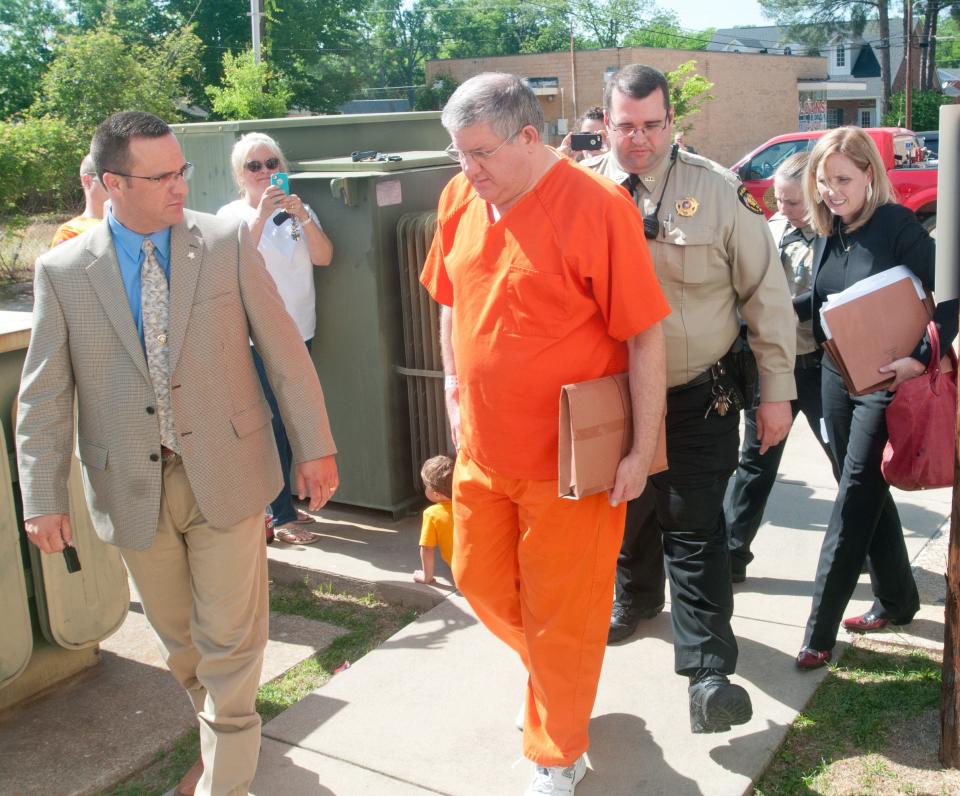
Acclaimed film director Richard Linklater sat with Tiede in the visitor’s area of the maximum security Estelle Unit near Huntsville on a sweltering summer day in August. Tiede described the unbearable broiling heat inside his unair-conditioned cell and his escalating medical danger.
“You wake up, and you’re just rolling in sweat,” Tiede, wearing a white prison jumpsuit, said in a series of short videos, adding that prison staff recorded the temperature in his cell at 120 degrees with an infrared thermometer days earlier. “There’s no escape. You can’t get away from it unless you put something wet on your face or you have a chill towel.
“You are talking about humanity,” Tiede added in videos Linklater provided the American-Statesman. “You are talking about an inhumane situation. If this happened to a dog, you’d be in prison. You’d be arrested.”
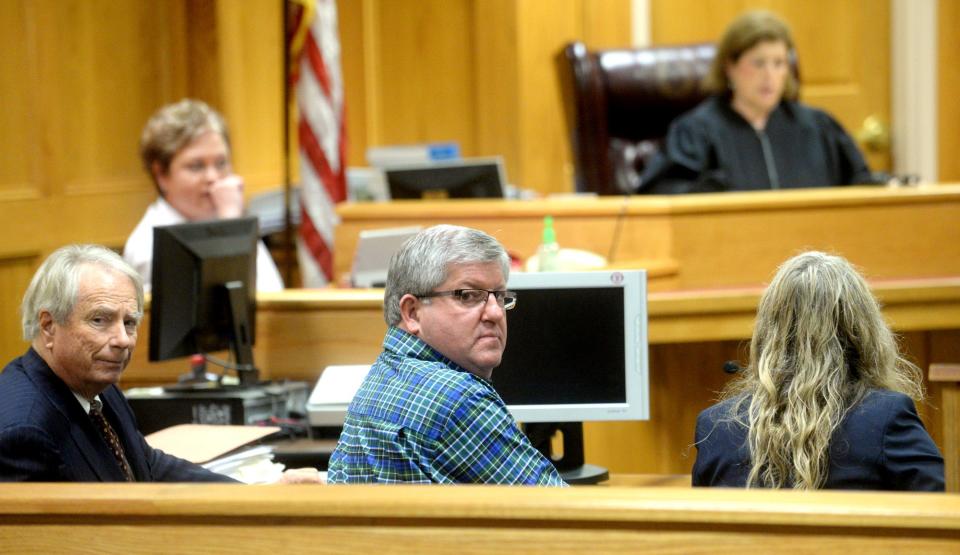
Tiede is serving a 99-year sentence in the death of Marjorie Nugent, who he shot and whose body he hid in a freezer before it was discovered nine months later. After her death, Tiede carried on as if nothing had happened, spending her fortune on gifts for others such as college scholarships, cars and a home for a needy couple.
Family members of Nugent, including her granddaughter, have described Tiede as a “con man” and “murderer.”
The conversation between Linklater and Tiede and Tiede’s overall health – he has hypertension, diabetes and other chronic conditions – became a basis for the lawsuit Tiede’s attorneys filed Aug. 24 in U.S. District Court against the state contending that Tiede faces immediate heat-related danger, declaring the conditions are “sadistic” and urging that he should be immediately moved to an air-conditioned area.
“Mr. Tiede’s life is in danger,” it said. “Time is of the essence.”
On Sept. 13, in a move that attorneys and advocates say could open a pathway for relief for other medically fragile people in prison, U.S. Magistrate Mark Lane ordered that the Texas Department of Criminal Justice move Tiede to air-conditioned housing for at least 14 days. His attorneys argued that in addition to his medical difficulties, keeping Tiede in an unair-conditioned facility is a violation of his Eighth Amendment protection against cruel and unusual punishment.
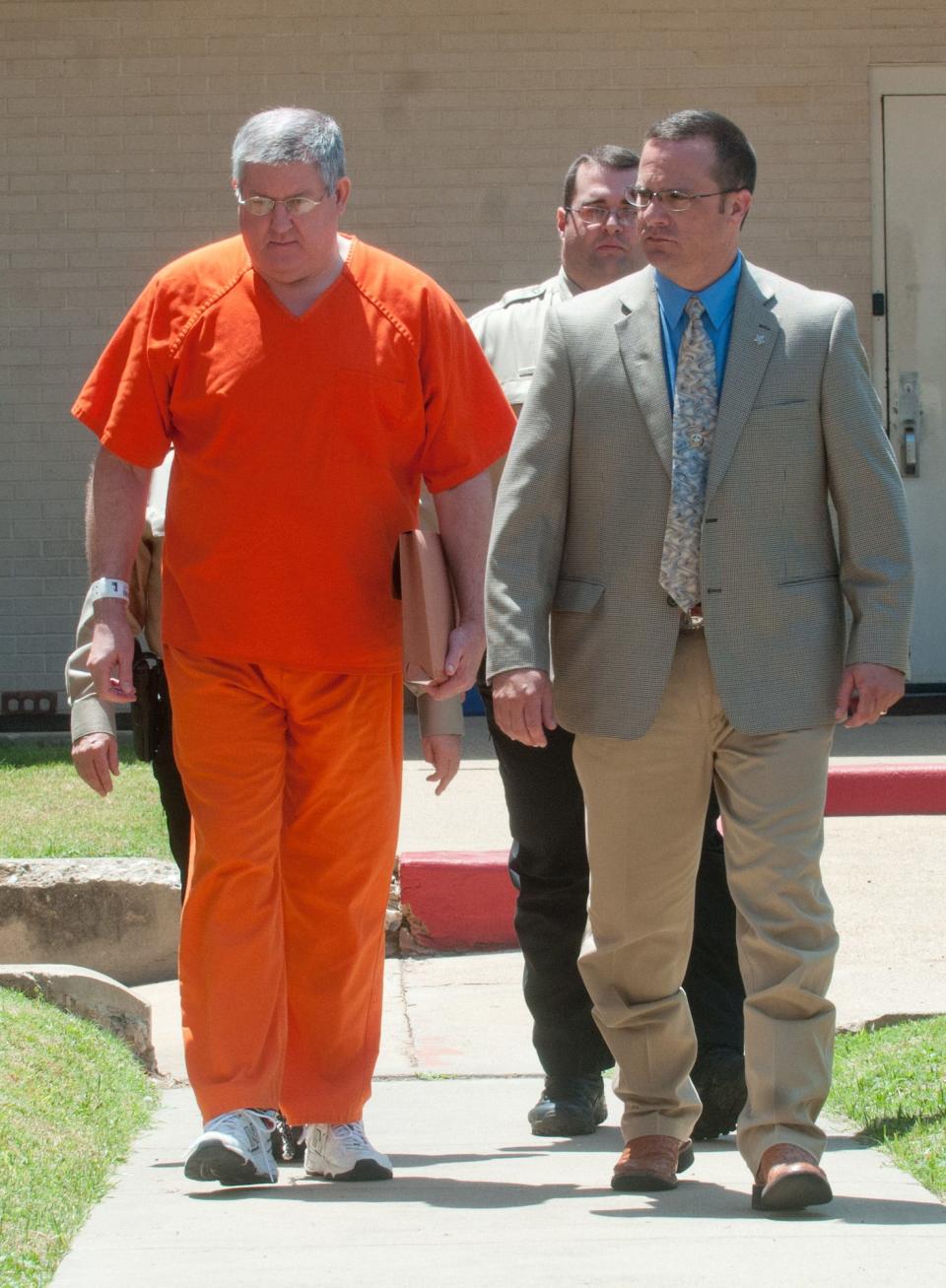
In a five-page ruling, Lane agreed that the evidence showed an immediate danger to Tiede and that “the nature of the risk – death – warrants emergency intervention.”
Jeff Edwards, who is part of Tiede's legal team, said he is not aware of another Texas case in which a judge granted a temporary restraining order on behalf of a medically vulnerable incarcerated person requiring them to receive air conditioning. He added that a judge previously granted a preliminary injunction several years ago that required the prison system to move inmates vulnerable to heat to safer conditions, which resulted in that facility getting air conditioning.
"It should provide a roadmap for other inmates and other concerned citizens on how to get into safer conditions," he said. "When you remove someone's liberty, you are obligated to protect them."
Attorneys for the state had argued – “unpersuasively,” Lane wrote – that Tiede’s circumstances do not constitute an emergency and that Tiede had not exhausted other avenues for help. The Texas Department of Criminal Justice, which operates more than 100 units and oversees 128,000 incarcerated people, told the Statesman that it does not comment on pending litigation.
Tiede’s attorneys are asking federal courts to extend his order before it expires Thursday.
More: A tale of two high-profile jail releases
A brutal summer: Second-hottest on record
Texas has suffered through one of its most brutal summers in history, putting a new and crisis-level emphasis on those incarcerated in the state’s prison system.
State climatologist John Nielsen-Gammon reported that 2023 was the second-hottest summer on record for the state, with an average temperature of 85.3 degrees from June 1 to the end of August, compared to the summer of 2011, when the average was 86.8.
Texas is one of at least 13 states that do not have universal air conditioning for state operated prisons.
'It's inhumane': Advocates, families urge Texas leaders to put AC in prisons amid heat wave
The number of people who have fallen ill or died from heat exposure throughout state prison history is unknown, and the state has not reported a heat-related death since 2012. However, “notable clusters of heat-related illnesses and deaths have occurred,” a July 2022 report by the Texas A&M University Hazard Reduction and Recovery Center said.
The report added that 23 people have died in the prison system from heat-related illnesses since 1998, and in 2018 alone, at least 79 incarcerated people and staff have been sickened by the heat.
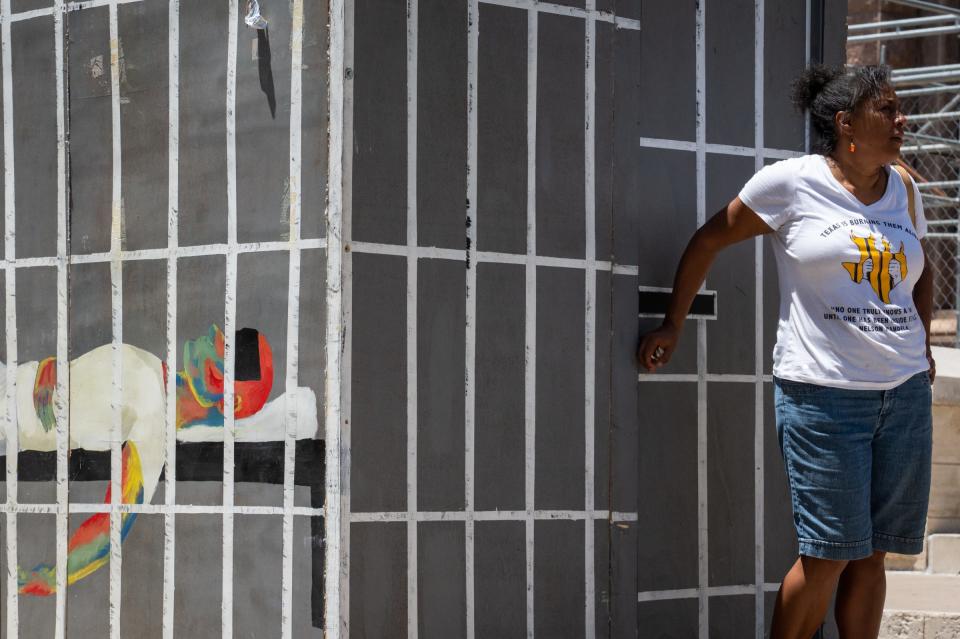
The report added that without air conditioning in all units, the Texas Department of Criminal Justice tries to mitigate heat exposure for people, including providing drinking water, using ice to chill water, cold showers, fans and cooled “respite” areas.
During the legislative session that ended in May, lawmakers were largely unable to come to an agreement on providing millions in state funding to address air conditioning and temperature requirements for Texas prisons.
More: Map shows at least 44 states lack universal air conditioning in their prisons
While a bipartisan effort advanced in the House to allocate about $540 million to cover the initial cost of a plan aiming to eventually provide "cool beds" in all of Texas' 100 prisons, the funding was never addressed in the Senate and was left from the state's $321.3 billion 2024-25 biennium budget.
Similar to the funding, a House-led effort to mandate the state's prisons to maintain temperatures between 65 and 85 degrees failed to receive a hearing in the Senate after clearing the lower chamber with broad support.
Lawmakers were able to include a last-minute allocation of $85.7 million in the state budget for the criminal justice department's ongoing deferred maintenance costs, which the department said it will use to increase air conditioning availability in prison living spaces.
In July, advocates and family members of incarcerated people held a rally on the south steps of the Capitol, where they placed a mock cell to demonstrate the intensity of the heat inside. They held signs to call attention to the issue, including one that said, “They don’t deserve to bake … just souls that made a mistake.”
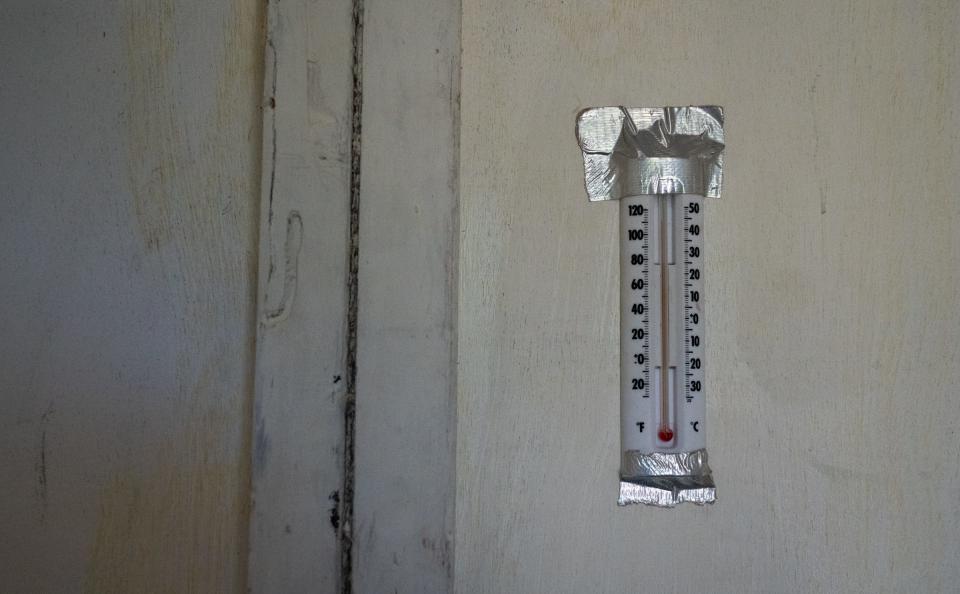
Efforts to help
According to the suit filed by Tiede attorney Jodi Cole, she and Tiede reconnected in April 2022 when he asked her to begin efforts to get him out of prison sooner through post-conviction work or a compassionate release. Tiede is eligible for parole in 2029 when he will be 71.
Cole reported that in June, Tiede suffered a medical crisis when he became ill from dizziness so severe that he could not stand up and suffered paralysis on the side of his face. He went to the hospital, but was not diagnosed with a stroke, although doctors first suspected that as a cause.
The seriousness of his condition prompted Linklater to visit on Aug. 4.
In an interview with the Statesman, Linklater said, “This is a humanitarian crisis. It comes up every year, and everyone knows this is a crisis. It is a horrible, torturous situation.”
“The clips represent not only his personal situation but serve as a firsthand account of the conditions everyone there is living under,” he added.
Cole concluded in the suit that Tiede’s continued incarceration in the unairconditioned facility is “especially obscene” given the history of his case. She pointed out that he was freed from 2014 to 2016, living in Austin in Linklater’s garage apartment, after he was granted a new sentencing-phase trial by arguing that he had acted in “sudden passion,” triggered by a history of sexual abuse, meaning that he should not receive more than 20 years in prison in Nugent’s death.
More: Bernie Tiede’s freedom was more than a feel-good sequel
Psychologists said the betrayal left Tiede unable to leave abusive relationships — like the one defense lawyers said he had with Nugent — and explained why he snapped the day he shot her.
Jurors resentenced him to 99 years in prison, a punishment a higher court upheld.
Cole said she hopes that Lane’s recent ruling will help other people in Texas prisons seeking respite from the conditions inside.
“Bernie Tiede’s medical emergency has resulted in an opportunity to help all Texas inmates, medically vulnerable or otherwise,” she said. “Our hope is that Bernie’s case will ultimately end the practice of housing inmates without air conditioning for good.”
Linklater said that he was so concerned about Tiede’s health during their visit last month that he thought he may soon die.
“This is a horrible feeling to have, when you are leaving someone but to go, ‘I think that might be the last time I see Bernie alive,’” he said. “You hate to have such dark thoughts ... but I really had that feeling.”
This article originally appeared on Austin American-Statesman: Why ‘Bernie’ is suing Texas for 'inhumane' conditions in prisons

